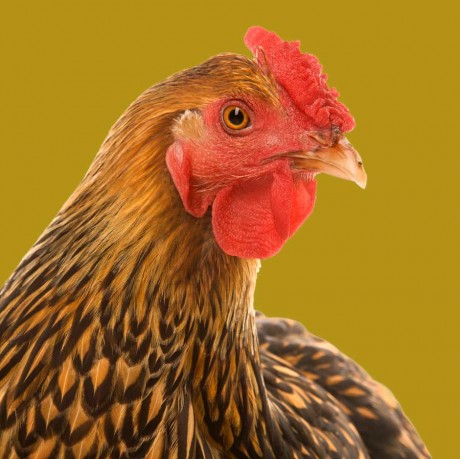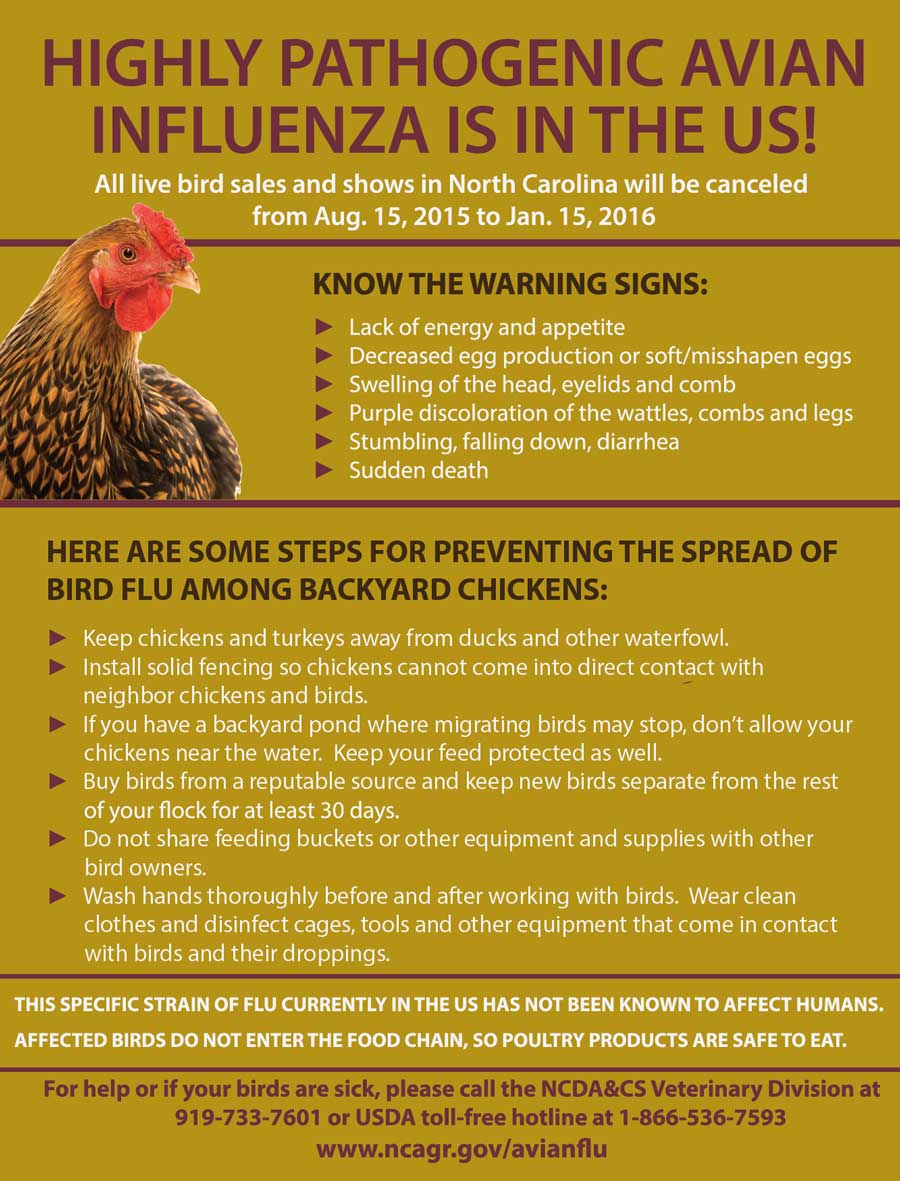North Carolina braces for avian flu
If there’s an outbreak, it won’t affect eggs and meat, but flocks and farmers could suffer.
If you raise poultry, even in your backyard, you are advised by the North Carolina state veterinarian to protect your birds from an avian influenza outbreak this fall. Dr. Doug Meckes has warned of a possible introduction of the flu when migratory wild birds who may carry the virus pass through the state from the autumn months until mid-January.
Humans rarely are affected by the avian flu, and no person has had the disease in the U.S., but poultry breeders can lose many birds.
Poultry products such as eggs and meat are no threat to human health during an outbreak of avian flu, says the N.C. Department of Agriculture and Consumer Services, but egg production itself will likely decline because of it.
As a precautionary move, North Carolina barred showing chickens and turkeys during September’s Mountain State Fair and will not allow shows at the N.C. State Fair, county fairs and farm tours statewide. The disease also can affect pheasants, quail, ducks, geese and guinea fowl.
Protection
Also the Agriculture Department has required all poultry owners, no matter how small a flock they have, to register their flocks. While some owners have complained, Meckes said, “We can’t protect birds that we don’t know exist. We need to know where poultry are located so we can properly protect commercial and backyard flocks.”
Registration is free and voluntary. The program is not a state mandate to license flocks, the state will not use the information to perform inspections, and all information is required by law to remain confidential.
“This disease has affected both commercial and backyard flocks and has been devastating for those bird owners,” Meckes said, noting that poultry is an $18 billion industry here. “Flocks affected by this disease show few signs of illness until they are within 24 hours of death, and no treatment can save them. I have asked for the registration of all flocks so that we may work together to preserve those birds by preventing exposure to infection.”
In addition to migratory birds, Meckes pointed out that the flu can be spread by vehicles, poultry houses and by wind. Poultry could come in contact with feces at ponds, on free-range pastures and even through vehicles that come and go at farms.
Biosecurity
Maintain your flock’s “biosecurity”:
Eliminate opportunities for your birds to interact with wild birds.
Protect your poultry and birds from all types of disease agents: viruses, bacteria, funguses or parasites.
If you have birds at home, do not visit another farm, home or facility that also has birds. If you must visit another premises, be sure to shower and put on clean clothes and shoes beforehand.
Know the signs to look for and monitor the health of your birds on a regular basis. Some signs to look for include nasal discharge, unusually quiet birds, decreased food and water consumption, drop in egg production, and increased or unusual death loss in your flock.
Report sick and dead birds to state health officials. Contact your local Cooperative Extension office or the State Veterinarian at 919-733-7601.
-
Share this story:





Comments (1)
Please advise if it's canceled or who will announce it when it is lifted
It's March 11th and haven't see or got any further guidance my 18 chickens desperately want to get out again
James Capps |
March 11, 2022 |
reply